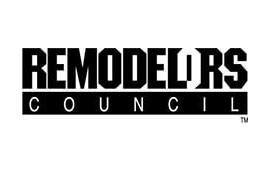Installing a floating floor can be a smart and practical choice for various spaces, offering several advantages that make it an appealing option. Understanding the benefits and considerations of a floating floor can help you make an informed decision that suits your needs and lifestyle. Reliable Design-Build-Remodel, a top home remodeling contractor, shares more insight.

What Are Floating Floors?
A floating floor is a type of flooring installation method where the individual planks or tiles are not directly attached to the subfloor. Instead, they are interlocked or adhered to each other, creating a “floating” layer that rests on the subfloor. This method is commonly used for laminate, engineered hardwood, vinyl, and other types of tile flooring.
Advantages of Floating Floors
One of the key benefits of a floating floor is its ease of installation. Unlike traditional flooring methods that require adhesives or nails, floating floors often use a click-and-lock mechanism or adhesive strips, making them a suitable choice for DIY enthusiasts. This can significantly reduce installation time and costs, especially if you’re tackling the project on your own.
Additionally, floating floors can be installed over various subfloors, including concrete, plywood, and other existing flooring, as long as the surface is flat and properly prepared. This versatility can save you the hassle and expense of removing old flooring materials before installing the new one, simplifying the renovation process.
Floating floors also have the advantage of being relatively low maintenance. The top layer of the flooring material is often designed to resist stains, scratches, and wear, making it a durable option for high-traffic areas. Cleaning is usually as simple as regular sweeping and occasional damp mopping, which can be particularly appealing for busy households.
Moreover, the “floating” nature can provide some insulation against noise and temperature changes. The slight cushioning effect of the underlayment can help reduce impact noise, making them a great choice for upper-level rooms or apartments. Additionally, some floating floors have built-in moisture barriers, further protecting against potential water damage.
Disadvantages of Floating Floors
While there’s a lot to love about floating floors, they’re not suitable for every application. For instance, a floating floor might not conceal uneven spots or damage if your subfloor has a lot of imperfections. They also won’t add as much value to your home as traditional hardwood would. This is an important consideration if you’re planning to sell your property in the future.
Making the Decision
A few factors must be considered before deciding on a floating floor. While they offer some level of insulation, they may not provide the same soundproofing or insulating qualities as more substantial flooring materials. If sound reduction and insulation are top priorities, you may need to explore additional measures or materials. And while doing your research is helpful, getting advice from a team of professionals is invaluable. They can assess your interior and exterior living space, recommend the best flooring options and ensure it’s installed for optimal performance and longevity.

Reliable Design-Build-Remodel is a full service general construction firm and remodeling contractor operating in the Birmingham metro and Jefferson and Shelby County areas and surrounding communities, including Birmingham, Helena, Chelsea, Mountain Brook, Hoover, Homewood, Montevallo, Alabaster, Vestavia Hills, and Pelham, with over 30 years of servicing our valued clients. Offering full service suite of general remodeling, design and build services. Our specialties include bathroom remodeling, kitchen remodeling, exterior renovations, interior renovations, painting, and more!
Visit us at reliablerem.com, and like and follow us on Facebook and Instagram!















